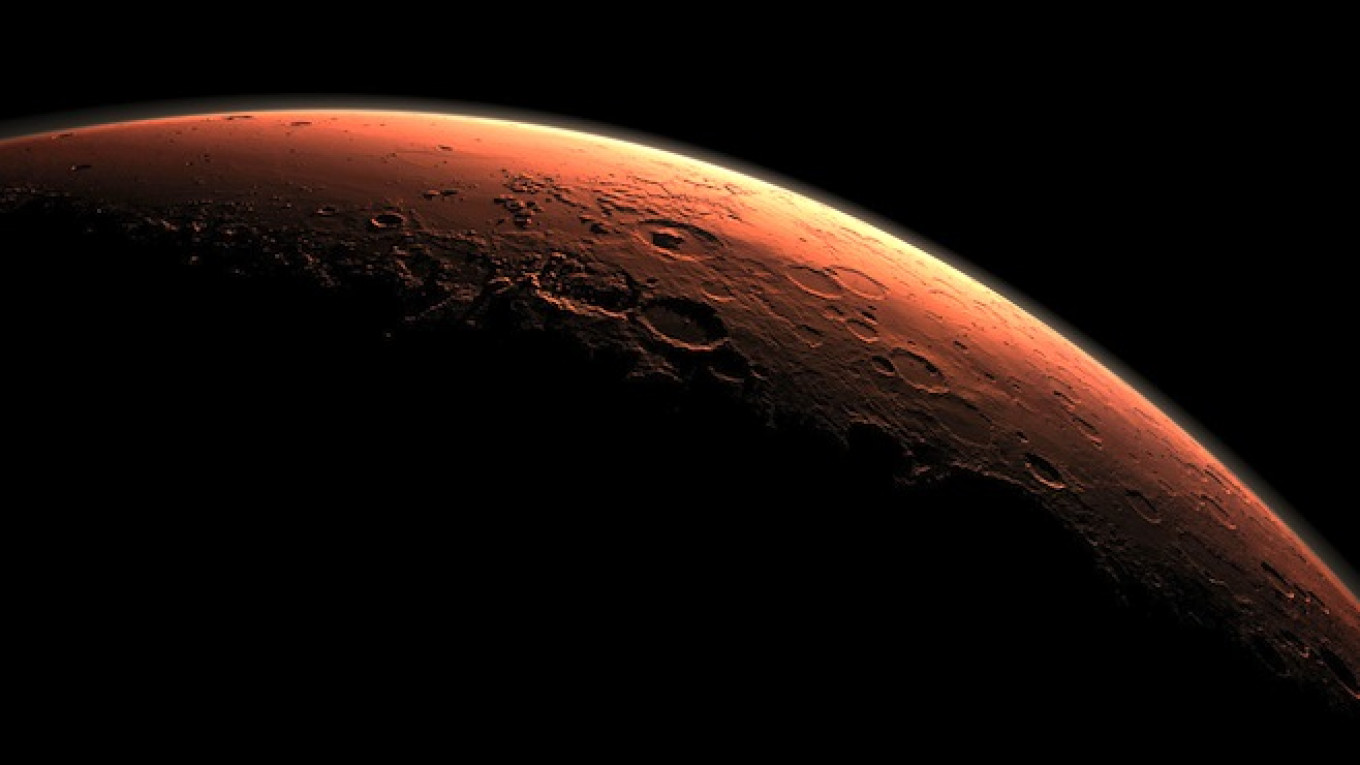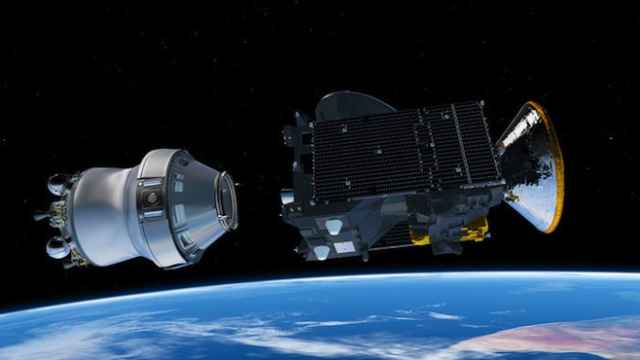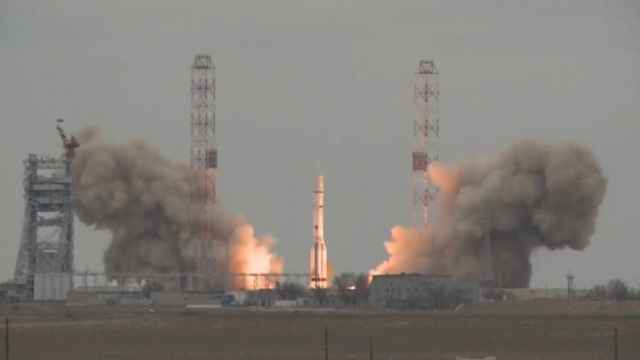A Russian Proton-M space rocket lifted off from the Baikonur Cosmodrome on Monday carrying a European Space Agency probe designed to sniff out life on the surface of Mars.
The probe, known as ExoMars, was successfully delivered into a holding orbit around the Earth, where it will wait for a command from ground controllers to proceed on its seven-month voyage to the Red Planet early Tuesday.
The ExoMars probe is the first of a two-phase mission designed by the European Space Agency with its Russian counterpart, Roscosmos. The second stage will launch in 2018. The project is the first expedition sent to Mars with the explicit purpose of searching for signs of life.
"The previous missions were aimed at finding water, but no mission was deliberately launched to find traces of life. This is the first time," said Daniel Rodionov, a laboratory head at Russia’s Space Research Institute told the TASS news agency Monday.
The ExoMars spacecraft carries with it two components: a Mars-orbiting satellite known as the Trace Gas Orbiter and a prototype landing vehicle known as Schiaparelli, which will test landing techniques for future Mars missions.
The two components will separate upon reaching Martian orbit in seven months. As the name suggests, the Trace Gas Orbiter will stay in space, while Schiaparelli makes a fiery descent to the Martian surface.
The Trace Gas Orbiter is intended to serve as an orbital communications link between Earth and a future ExoMars rover that is scheduled to launch on the 2018 segment of the two-part ExoMars project. That rover, according to current plans, will be designed for a six-month survey on the surface.
Joint Project
ExoMars was conceived as a collaborative effort with U.S. space agency NASA and the European Space Agency. Roscosmos joined the project in 2009, and NASA withdrew in 2012 due to funding constraints.
The Russian contribution to the project included the launch of ExoMars on a Proton-M rocket, the development of several scientific instruments for the probe, and the development of a landing system for the 2018 ExoMars rover.
The second phase of the mission may yet be delayed, however, according to recent statements from European and Russian space agency officials. Both are experiencing funding crunches, and in January ESA chief Jan Woerner predicted a delay of about two years.
Woerner’s comments were reinforced by Roscosmos head Igor Komarov before the ExoMars launch in Baikonur on Monday. Komarov said the two sides are “discussing” the possibility of rescheduling the launch to 2020, but stressed no final decision has yet been made.
Image Boost
The successful launch of the first stage of the ExoMars project will provide a much needed boost to Russia’s image as a spacefaring nation, according to Russian space industry analyst Pavel Luzin.
“The launch is important because we show that we can fulfill our obligations despite all our troubles in the space industry,” said Luzin. Moreover, the fact the mission took place amid turbulent East-West ties heightened its significance, he said.
Luzin predicted the mission’s presumed success is likely to have benefits for Russia’s space program, which is struggling to stay competitive. International cooperation can help Russia move forward in areas that is has fallen behind.
“It’s a question of what we do with this cooperation,” Luzin said. “Will we use it to modernize our industry and technology, or will we use it just as a prestige project? If it’s the latter, we are not going to succeed [in space],” he said.
Contact the author at [email protected]
A Message from The Moscow Times:
Dear readers,
We are facing unprecedented challenges. Russia's Prosecutor General's Office has designated The Moscow Times as an "undesirable" organization, criminalizing our work and putting our staff at risk of prosecution. This follows our earlier unjust labeling as a "foreign agent."
These actions are direct attempts to silence independent journalism in Russia. The authorities claim our work "discredits the decisions of the Russian leadership." We see things differently: we strive to provide accurate, unbiased reporting on Russia.
We, the journalists of The Moscow Times, refuse to be silenced. But to continue our work, we need your help.
Your support, no matter how small, makes a world of difference. If you can, please support us monthly starting from just $2. It's quick to set up, and every contribution makes a significant impact.
By supporting The Moscow Times, you're defending open, independent journalism in the face of repression. Thank you for standing with us.
Remind me later.






